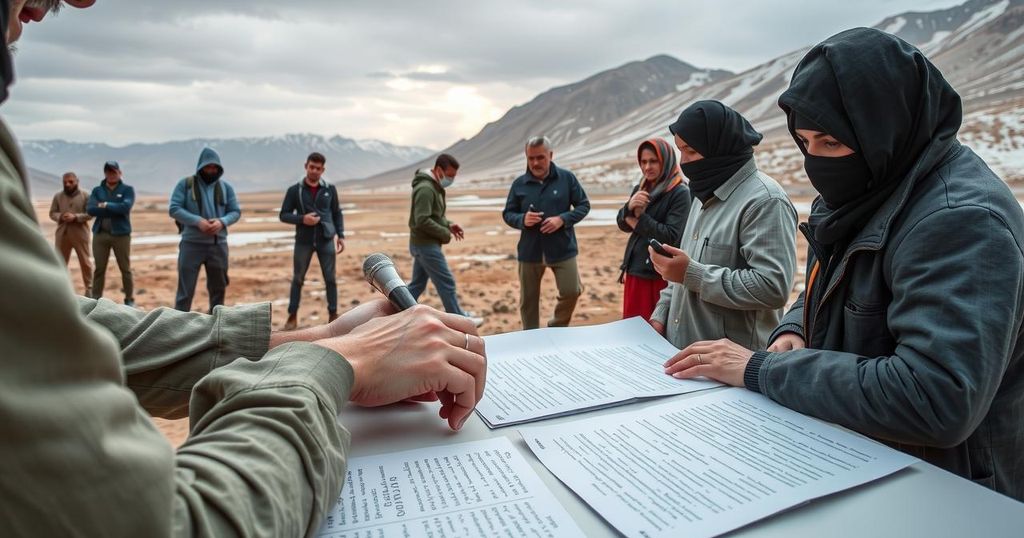Pakistan Achieves Peace Accord in Sectarian Conflict-Ridden Kurram District
Authorities in Kurram district, Pakistan, have reached a peace agreement between Sunni and Shiite tribes following violent clashes. The traditional grand assembly mediated the deal, which involves dismantling bunkers and surrendering weapons. The accord aims to restore security, reopen transportation routes, and is a response to recent violence that left over 130 dead. Residents have faced severe shortages due to traffic halts, prompting helicopter deliveries of essentials while advocating for road access.
In a significant development, authorities in Kurram district, located in northwestern Pakistan near the Afghan border, have successfully brokered a peace agreement between rival Sunni and Shiite Muslim tribes following a series of violent confrontations. This resolution was facilitated by a traditional grand assembly of tribal elders, who addressed longstanding land disputes that have historically sparked widespread sectarian violence in the area. Provincial spokesperson Muhammad Ali Saif confirmed that both factions have agreed to dismantle their fortifications and surrender their heavy weaponry to government forces.
Saif expressed optimism about the agreement’s potential to stabilize Kurram, a district home to approximately 800,000 residents, stating that the peace deal would restore safety and foster development. This arrangement follows an alarming escalation of violence that commenced on November 21, when a brutal ambush claimed the lives of 52 Shiite individuals traveling in a convoy. Although the perpetrators of this attack remain unidentified, it triggered retaliatory strikes from Shiite militants against Sunni communities, culminating in an overall death toll exceeding 130 individuals.
The persistent sectarian violence had previously necessitated a suspension of all traffic to and from Kurram, adversely impacting the local populace’s access to essential resources. In light of these developments, Saif indicated that the peace deal should facilitate the reopening of roadways, allowing stranded supplies and passengers to resume their journeys shortly. As a temporary measure, Pakistani authorities had been using helicopters to deliver critical supplies, although local residents expressed dissatisfaction with this arrangement, advocating for the reopening of ground transportation channels.
Kurram district stands out as the only area in Pakistan where Shiite Muslims hold a majority position, further complicating the sectarian dynamics at play. Additionally, ongoing tensions have disrupted Pakistan’s bilateral and transit trade with landlocked Afghanistan via the Kharlachi crossing, underscoring the widespread implications of the conflict.
Kurram district, situated along the border with Afghanistan, has a history of sectarian clashes brought about by entrenched rivalries between Sunni and Shiite Muslims. These tensions are often exacerbated by land disputes and longstanding grievances, resulting in periodic episodes of violence. The most recent unrest highlighted the fragility of the situation, leading to tragic losses of life and necessitating intervention from provincial authorities to broker a ceasefire and facilitate peace talks. The district’s unique demographic makeup, with Shiite Muslims constituting the majority, adds complexity to the sectarian landscape.
The peace agreement in Kurram district represents a critical step towards restoring stability in a region plagued by sectarian violence. By dismantling their defensive structures and relinquishing heavy weaponry, the warring factions demonstrate a commitment to dialogue and collaboration. This initiative aims to not only ameliorate immediate security concerns but also to promote long-term development and community welfare. Furthermore, the reopening of roadways is expected to alleviate shortages and support local trade, crucial for the residents’ livelihoods.
Original Source: www.voanews.com








Post Comment